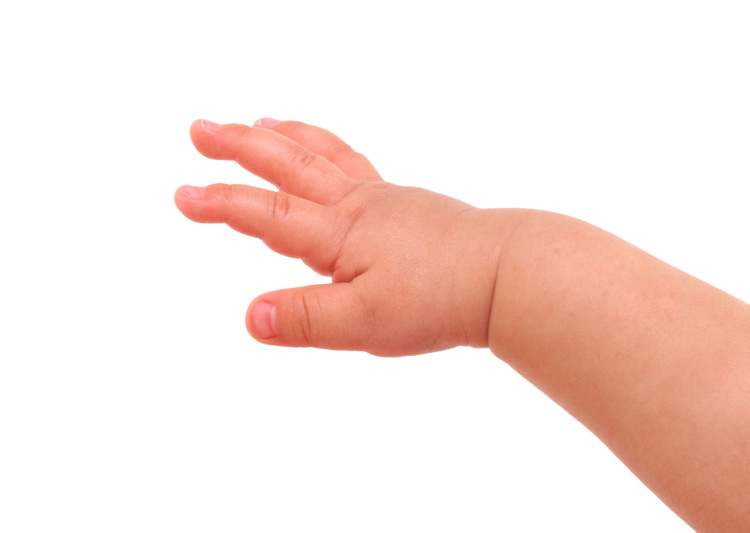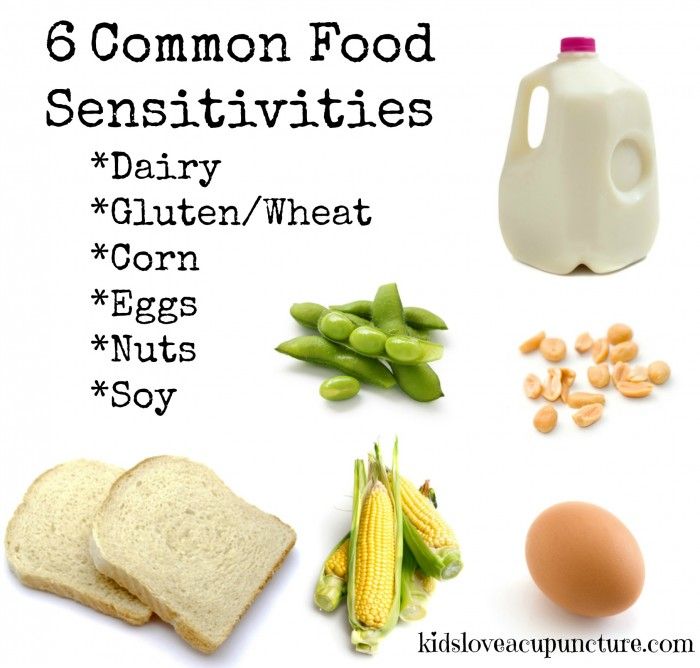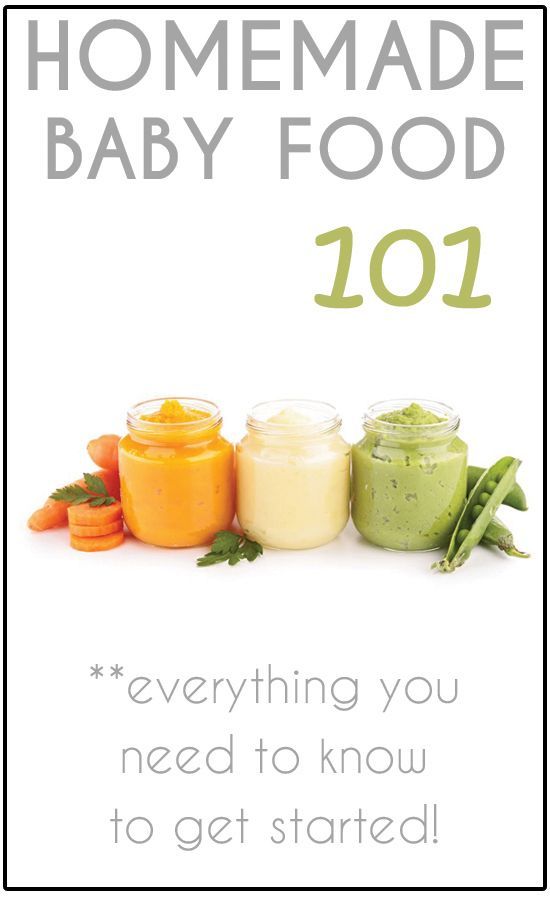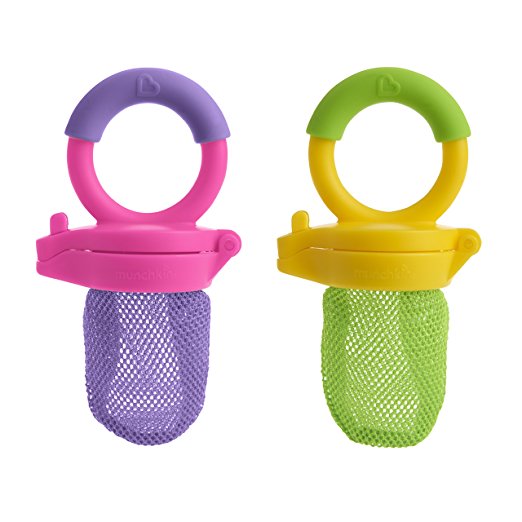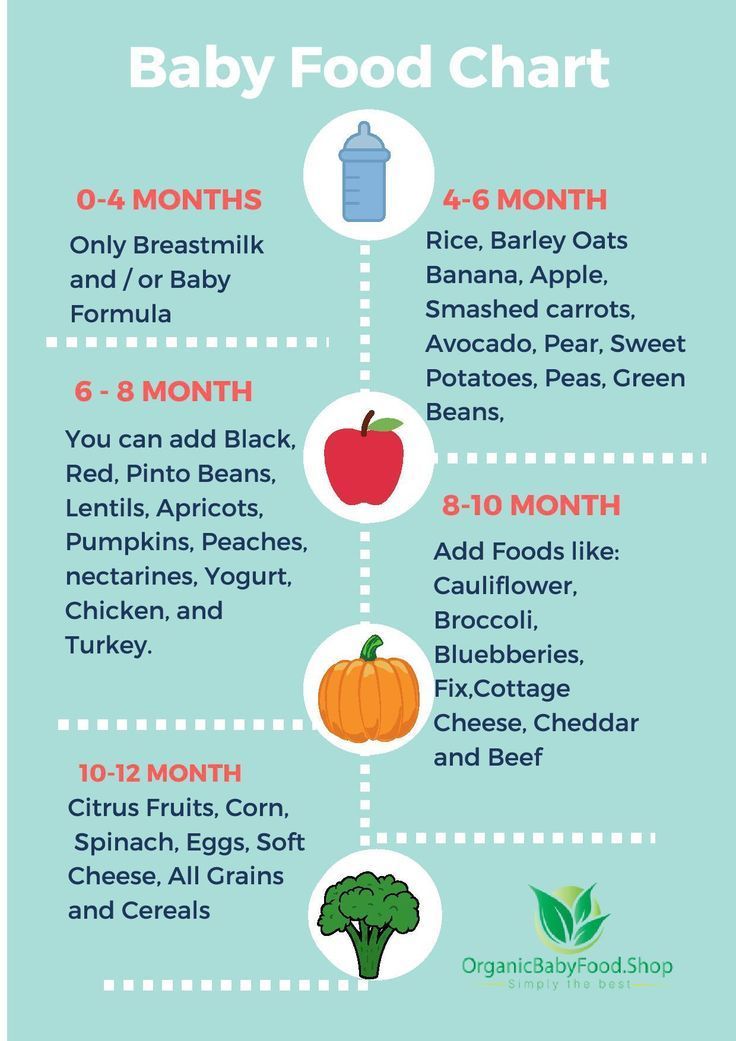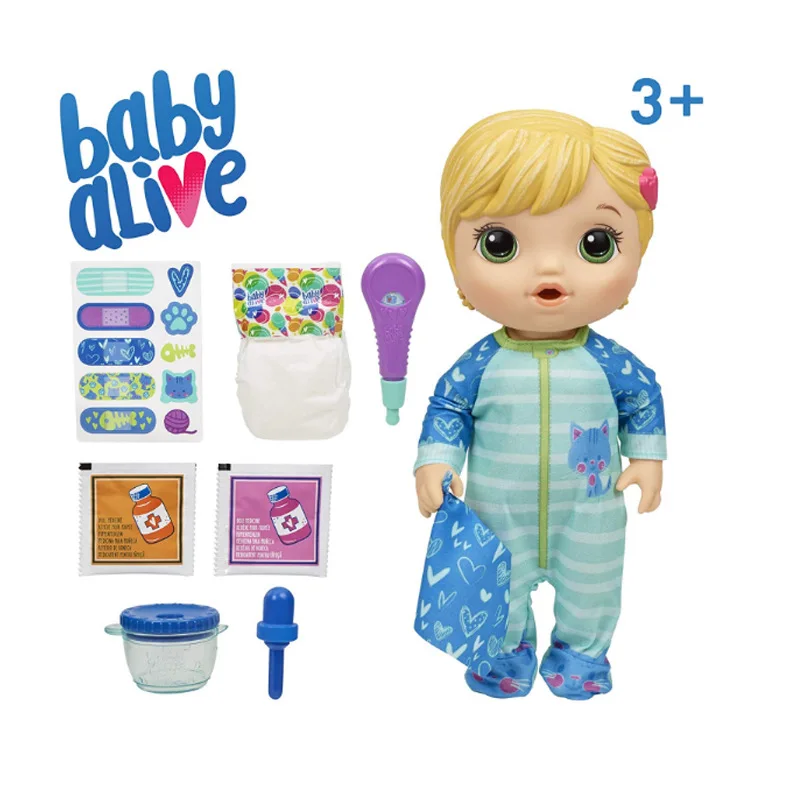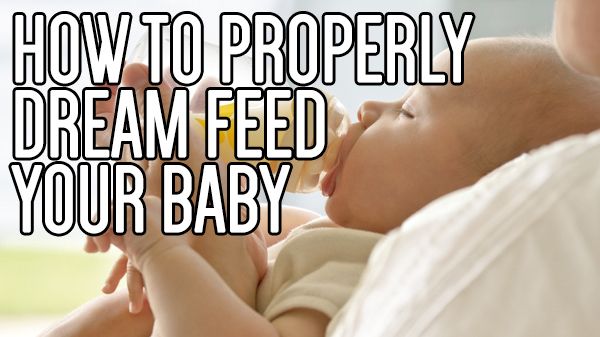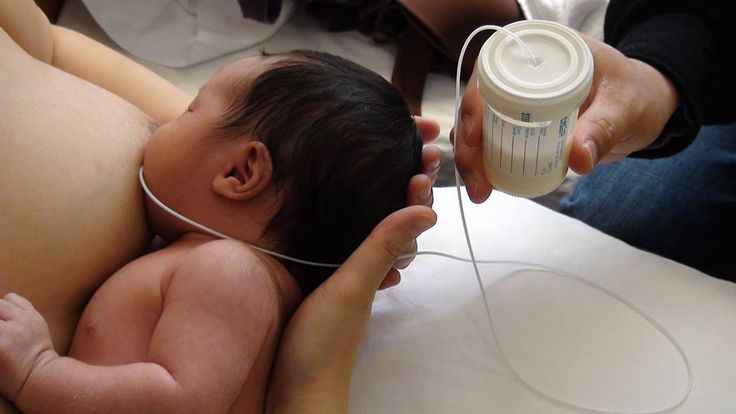Organic baby food germany
HiPP German Organic Baby Formula | HiPP Organic Combiotic Formula
-
- Suitable for children 1 year onward
- 600g in each box
- New preparation measurements - see the preparation tab!
- Makes 150 fluid ounces of prepared formula
- Biodynamic organic certified formula
- Gluten-free
- Does not contain starch / maltodextrin
- Contains Prebiotic oligosaccharides (GOS) for a healthy digestive system
- Supplements solid foods
- No corn syrup or added sugars
- HiPP Organic Combiotic Kindermilch can be prepared in a bottle and also transferred to a cup.
- HiPP ensures an easy transition to solid foods
Your baby has just hit the 1-year milestone and is by now surely enjoying a great variety of food, but you want to make sure, of course, that your little one is still getting all the nutrients and vitamins needed in this important growing stage.
Maybe your baby has been on formula for a long time, or maybe this is the first time you introduce formula milk, either way, HiPP Kindermilch Combiotic is a great way to make certain that all of the nutritional needs of your growing toddler are met.
HiPP Organic Milk is great to feed in a bottle, sippy cup or to be used to add extra taste and health benefits to warm porridges, cereals or mashed food.
HiPP Stage 4 formula has the great advantage of containing important protein content which is well suited for the needs of fast-growing toddlers.
At this age, your little one will go through a number of growth spurts and that is why it is so important at this phase to provide all necessary sources of nourishment, extra food, drink, and sleep.
HiPP Children’s Milk contains omega-3 fatty acids which are derived from organic vegetable oils. These fatty acids are great to stimulate the growth of the brain, as the body does not develop these fatty acids on its own, which makes it important to get them through food.
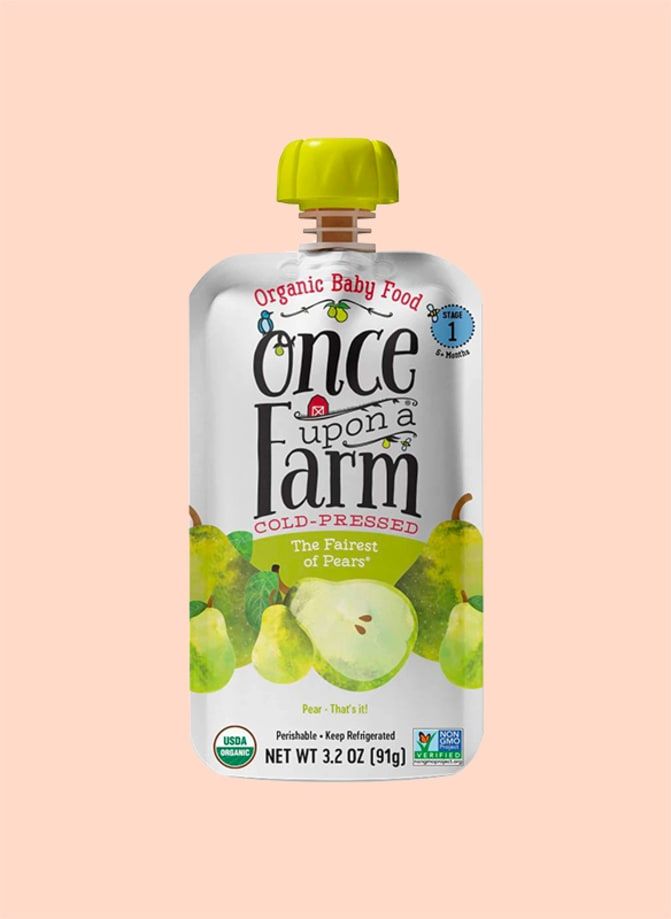
It also contains valuable minerals and vitamins that will support your toddler’s ongoing developmental needs. Made from the very high-quality milk, you can be proud of the choice you made with this formula.
HiPP Kinder Milk 1 contains no preservatives or artificial chemicals, which unfortunately can be found in regular milk, this is a major plus for the health-conscious moms and dads who want only the very best for their toddler.
Containing no genetically modified ingredients, no added sugar, and being gluten-free makes this formula even better, as it is very gentle on the digestion.
In contrast to the milk found in supermarkets, this growing up formula is made from milk that comes from cows raised only on biodynamic farms. This farming method’s popularity has been increasing over the years, and so has the sustainable and natural farming that builds the future for our planet and the next generations. By making the choice to feed HiPP Stage 4, you are choosing a natural and healthy baby formula that has been produced by kind farming methods and consideration to our beloved animals.
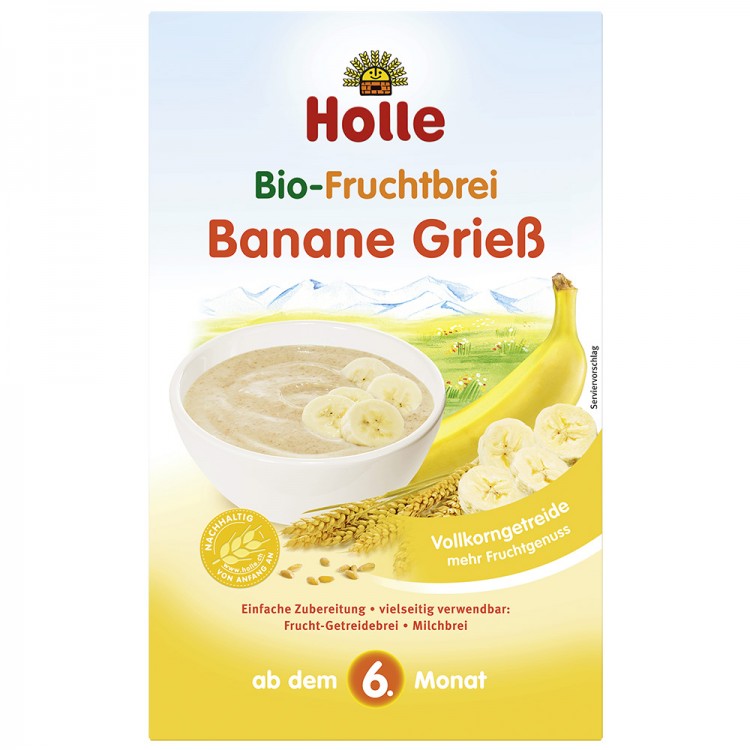
HiPP meets all EU organic regulations in the production of their organic baby milk and this means that you can trust that you are choosing a nutritious formula in which you can rely on the quality of the milk and ingredients.
Frequently Asked Questions | Organic Baby Food Shop
What are Lebenswert, Holle, and HiPP baby formulas?
Why is this baby formula better than other formulas?
Why aren’t Holle, HiPP, and Lebenswert baby formulas "USDA" certified organic?
Why can't I find Holle, HiPP, and Lebenswert baby formulas at a grocery store or other big stores?
Where do you ship to?
What do the different stages in HiPP, Lebenswert and Holle formulas mean?
How do I prepare this baby formula?
Is it okay to prepare the formulas without boiling the water?
About how long can a box of organic baby formula last for my baby?
How many fluid ounces of baby formula does one box make?
Do pediatricians recommend Lebenswert, Holle, and HiPP?
What is the storage life for HiPP, Lebenswert, and Holle?
Do you carry goat formula?
Do you carry non-dairy soy formula?
What is the Expiration Date Format? Is it close to being expired?
Where are orders shipped from?
When do you ship the orders?
How long will it take for me to receive my shipment?
What are rewards and how does your reward program work?
Where can I buy baby formula in bulk?
Can I become a reseller?
What are Lebenswert, Holle, and HiPP baby formulas?
Lebenswert, Holle, and HiPP are organic infant formulas made with 100% organic milk exclusively from grass-fed, pasture-raised cows on certified organic, biodynamic farms.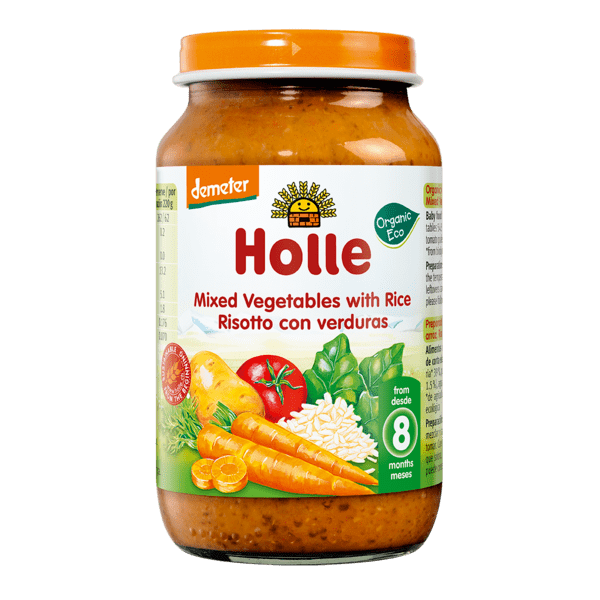 Bioland and Demeter guidelines are likely the most strict in the world when it comes to organic certification requirements and include: proper sustainable land-use; zero GMOs; no chemical or synthetic fertilizers, no hormones, and no antibiotics used; the use of sustainable energy and carbon-neutral operations; and free-range, cruelty-free animal farming techniques.
Bioland and Demeter guidelines are likely the most strict in the world when it comes to organic certification requirements and include: proper sustainable land-use; zero GMOs; no chemical or synthetic fertilizers, no hormones, and no antibiotics used; the use of sustainable energy and carbon-neutral operations; and free-range, cruelty-free animal farming techniques.
Why is this baby formula better than other formulas?
Lebenswert, Holle, and HiPP baby formulas contain no preservatives, no added cane sugar, no high fructose corn syrup, no soy, no gluten, no coloring, and no flavorings. Most infant formula sold in stores (even organic) contain a significant amount of sweeteners like sugar or high-fructose corn syrup, and many contain known carcinogens such as artificial preservatives, flavors, and colors. Moreover, most milk-based formulas are from cows that are not fed an organic diet and that receive hormone and/or antibiotic treatments, all of which can be transferred to the formula and digested by babies.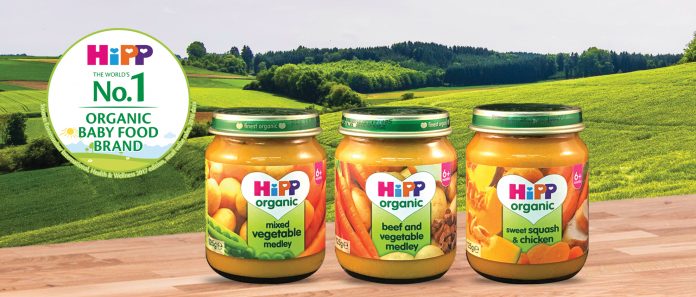
Why aren’t Holle, HiPP, and Lebenswert baby formulas "USDA" certified organic?
The Holle company (which also produces Lebenswert formulas) is based in Switzerland and the HiPP company is based in Germany and Austria. These countries are located in Europe and fall under the regulation of the European Union (EU). The USDA regulates the "organic" label within the U.S., but does not have jurisdiction in Europe. However, the EU has extremely strict regulations regarding organic labeling, and even more strict regulations for infant formula. Holle and HiPP go many steps beyond EU regulations to meet the "Bioland" and "Demeter" standards, which include the use of biodynamic farming, humane treatment of animals, the use of sustainable energy, and CO2 neutral operations. These formulas are literally the best in the world!
Why can't I find Holle, HiPP, and Lebenswert baby formulas at a grocery store or other big stores?
As an EU product and brand, Holle and HiPP have mainly focused on selling their formula brands within the EU and have not sought FDA approval yet.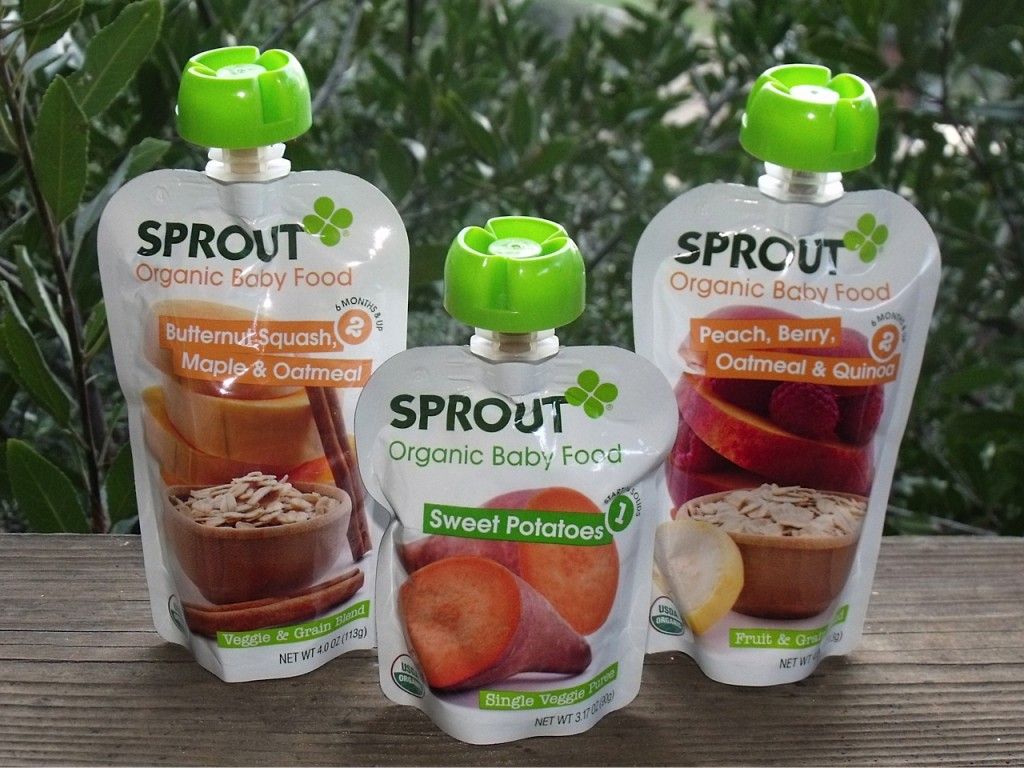 For parents like us who live in the U.S., that means that we have been stuck begging friends to bring back boxes when they travel to Europe, or have ordered online and paid outrageous shipping fees while waiting 3 weeks for a box to arrive. Organic Baby Food Shop solves this problem for you!
For parents like us who live in the U.S., that means that we have been stuck begging friends to bring back boxes when they travel to Europe, or have ordered online and paid outrageous shipping fees while waiting 3 weeks for a box to arrive. Organic Baby Food Shop solves this problem for you!
Do you ship from the US? What about irradiation?
We operate an office in Germany, which ships to our offices in Austin, Texas; Freehold, New Jersey; Chicago, Illinois; and Los Angeles, California weekly with new formula. This ensures we always have the freshest formula available for your baby. We ship 5 days a week from our four offices with free and fast shipping included with every order above $50 (USPS/UPS/DHL). We know the feeling of running out of formula last-minute, so we also offer priority shipping. All orders are processed and shipped the same day (except for Sundays and postal holidays) with 1-4 day standard shipping or USPS priority shipping.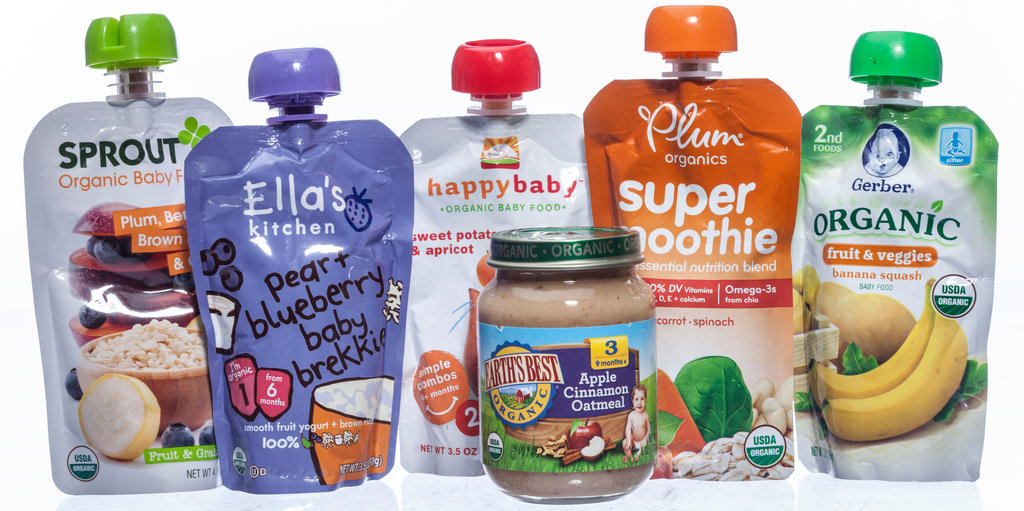 We take special measures to guarantee that our formulas are not irradiated when they are imported to the U.S., as this is important for the health of your baby. We feed our babies this formula as well so it is very important to us as parents!
We take special measures to guarantee that our formulas are not irradiated when they are imported to the U.S., as this is important for the health of your baby. We feed our babies this formula as well so it is very important to us as parents!
We have offices and warehouses all across the U.S. which enables us to offer fast, free shipping and local customer service across the country. We currently do not ship outside the U.S. from our retail shop; however, if you live in Canada, we invite you to visit our Wholesale Store, where you can buy all of our amazing brands like Lebenswert Bio Baby Formula, HiPP Baby Formula and Holle Bio Baby Formula for the absolute best price and shipping directly from Germany. If you need further information, please feel free to reach out to us.
What do the different stages in HiPP, Lebenswert and Holle formulas mean?
Each stage is designed for a specific age range of your baby to ensure he or she gets all the nutrients and vitamins they need. Generally, Stage Pre is from birth to 3 months, Stage 1 is from 0 to 6 months (though many parents start at 3 months), Stage 2 is from 6 to 10 months, and Stage 3 is from 10 months and up. These are not strict guidelines, so if you have questions feel free to ask!
Generally, Stage Pre is from birth to 3 months, Stage 1 is from 0 to 6 months (though many parents start at 3 months), Stage 2 is from 6 to 10 months, and Stage 3 is from 10 months and up. These are not strict guidelines, so if you have questions feel free to ask!
Stage Pre Organic Baby Formula: Can be fed from birth until 6 months of age, it does not contain Maltodextrin or starch which prevents babies from feeling full a false sense of fullness. This stage is ideal if your baby is being fed formula only.
Stage 1 Organic Baby Formula: Can be fed from birth until 6 months, either by itself or in addition to breast milk.
Stage 2 Organic Baby Formula: Ideal for babies who are 6 to 10 months, this formula can be fed either by itself or in addition to breast milk.
Stage 3 Organic Baby Formula: Can be fed to babies and toddlers starting at 10 months.
How do I prepare this baby formula?
- Sterilize all items that will be used.
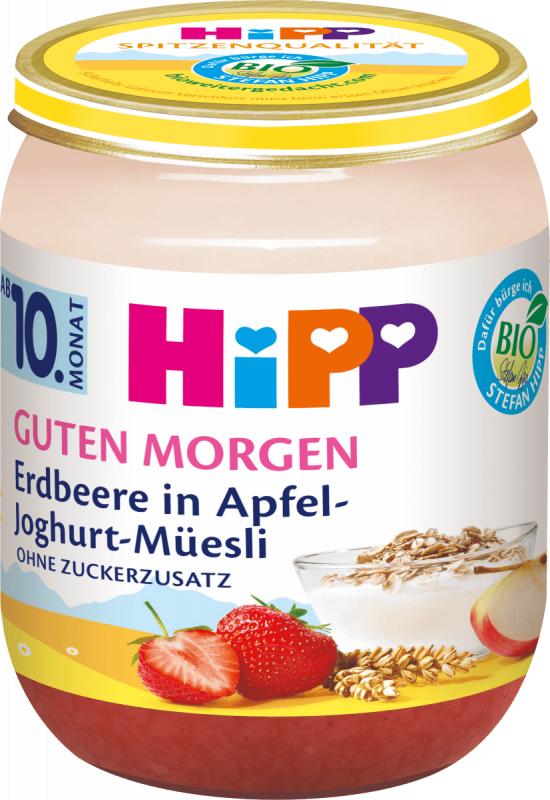
- Boil clean water according to the link below (also provided with your order).
- Add 3/4 of the water into the clean, sterilized bottle.
- Use the measuring spoon provided to measure the amount of formula powder that corresponds to how much you’re making.
- Close the bottle and shake until mixture is dissolved.
- Add remaining water to the bottle and shake more; then allow it to cool.
- Always test the temperature of the formula on the inside of your wrist before feeding your baby. For more detailed information, take a look at our Holle, HiPP, and Lebenswert preparation guides.
Is it okay to prepare the formulas without boiling the water?
While many parents do not boil the water they are using to prepare the formula, it is advised to do so as it can eliminate bacteria.
About how long can a box of organic baby formula last for my baby?
Unfortunately, we’re not able to answer this question because it depends on how old your baby is and if the formula is the only thing your baby is being fed.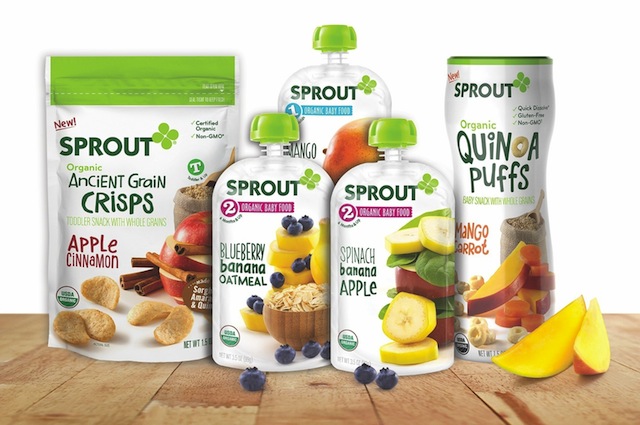 A typical box of formula like Lebenswert contains 500 grams of formula which can make 125 liquid ounces of formula. If your baby were to eat bottles with 6 ounces of formula, this would make approximately 20 bottles worth. It is a good idea to order a bit more than you expect to use - not only do we offer great bulk prices, but then you won’t risk running out of formula with a hungry baby to feed!
A typical box of formula like Lebenswert contains 500 grams of formula which can make 125 liquid ounces of formula. If your baby were to eat bottles with 6 ounces of formula, this would make approximately 20 bottles worth. It is a good idea to order a bit more than you expect to use - not only do we offer great bulk prices, but then you won’t risk running out of formula with a hungry baby to feed!
How many fluid ounces of baby formula does one box make?
One 500g-box makes approximately 128 fluid ounces of formula.
Do pediatricians recommend Lebenswert, Holle, and HiPP baby formulas?
Yes, both in Europe and in the U.S., pediatricians highly recommend Lebenswert, HiPP, and Holle baby formulas, especially for babies who have had a bad reaction to other formulas.
What is the storage life for HiPP, Lebenswert, and Holle?
Once the formula pouch is opened, Lebenswert and Holle have a storage life of at least 2 weeks; HiPP has a storage life of 3 weeks. Once the formula has been opened, it is important to store it in a dry, dark, and clean place, ideally in a sealable glass container.
Once the formula has been opened, it is important to store it in a dry, dark, and clean place, ideally in a sealable glass container.
Do you carry goat formula?
Yes, we carry Holle Goat Stage 1, Holle Goat Stage 2, and Holle Goat Stage 3.
Do you carry non-dairy soy formula?
We currently do not carry this type of baby formula. Soy is generally not recommended as an ingredient for babies to consume.
What is the Expiration Date Format on your packaging? Is it close to being expired?
The expiration dates printed on each box and inner pouch of formula are in European/German format, which is dd.mm.yyyy. This means that an expiration date printed as 02.11.2020 is not expiring on February 11, 2020, but rather, expires on November 2, 2020. We always order the newest batches of formula for our formulas, so you do not have to worry about formula expiring soon after you receive it.
Where are orders shipped from?
We currently have 4 offices and warehouses in the U.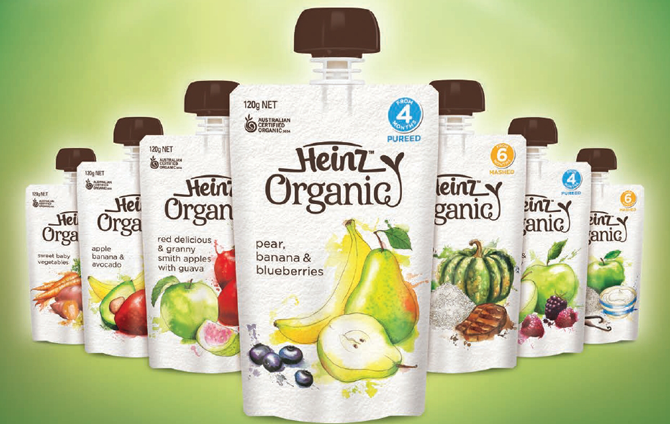 S., in Los Angeles, California; Freehold, New Jersey; Chicago, Illinois; and Austin, Texas. We ship orders Monday through Saturday. Our wholesale site ships directly from Germany.
S., in Los Angeles, California; Freehold, New Jersey; Chicago, Illinois; and Austin, Texas. We ship orders Monday through Saturday. Our wholesale site ships directly from Germany.
When do you ship the orders?
We ship orders 6 days a week from our warehouse closest to your home to ensure fast reliable shipping.
How long will it take for me to receive my shipment?
Depending on the day of the week you order and when you place your order, most shipments arrive within 1 to 3 days. Keep in mind that our daily cut-off for same day shipments is 5 PM central time Monday through Friday and 2 PM central time on Saturdays. We cannot ship anything on Sunday as all couriers are closed on Sundays. Any orders placed after our cut-off times will be shipped the following business day.
What are rewards and how does your reward program work?
Once you register for an account with us, you will automatically start receiving baby points for each purchase you make! You can also earn rewards by liking us on Facebook, Instagram, etc.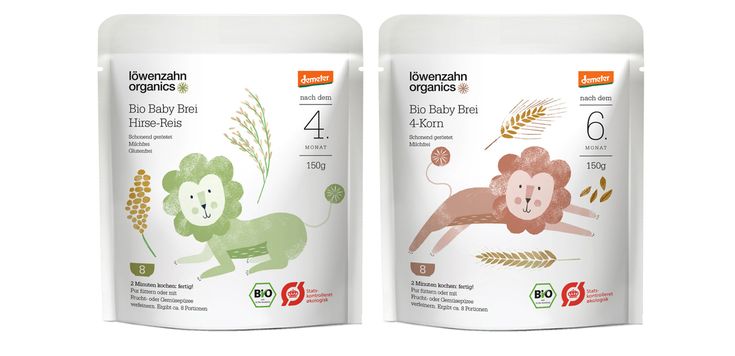 You can then use these points to redeem for coupons to use toward future purchases. You will also receive a unique affiliate referral link which you can provide to your friends who will receive a 10% discount on their first order — and you will receive a $10 discount once they order! Are you interested in being an affiliate and earning commission on sales? Sign up for our affiliate program here.
You can then use these points to redeem for coupons to use toward future purchases. You will also receive a unique affiliate referral link which you can provide to your friends who will receive a 10% discount on their first order — and you will receive a $10 discount once they order! Are you interested in being an affiliate and earning commission on sales? Sign up for our affiliate program here.
Where can I buy baby formula in bulk?
We have a wholesale store here where you can find Lebenswert, HiPP, and Holle baby formulas in bulk for the best prices sent to you directly from our warehouse in Germany.
Can I become a reseller?
Absolutely! We can provide you with all of our formulas through our wholesale store. Feel free to reach out to us at [email protected] to get more information on our B2B program.
HiPP: the highest quality organic baby food
We know that many mothers cringe at the thought of canned baby food, preferring zucchini, broccoli or bananas from the nearest market.
 But what do you know about store-bought zucchini, "farm" broccoli and "bio" beef from even the so-called "eco" meat department? Are there any guarantees of quality when the Russian market is simply in trouble with organic vegetables and fruits?
But what do you know about store-bought zucchini, "farm" broccoli and "bio" beef from even the so-called "eco" meat department? Are there any guarantees of quality when the Russian market is simply in trouble with organic vegetables and fruits?
The choice of the first feeding method is always up to the mother. Yes, baby food standards are now strict in Russia and are met by all manufacturers. Despite this, baby food standards allow the use of chemicals and pesticides in minimal doses that are not considered to affect the baby's body. Organic baby food means that the ingredients are grown without the use of pesticides, chemical fertilizers and growth hormones. nine0005
In the case of HiPP baby food, this also means that each jar passed 260 checks along the way. Two hundred and sixty! But first things first.
HiPP: over 60 years of experience in the production of organic baby food
For more than 60 years, HiPP organic baby food of the highest quality has been produced in the Bavarian town of Pfaffenhofen. It all started even earlier and literally with crackers - in 1899, Josef Hipp in his HiPP confectionery made the first children's porridge from crackers, milk and water. Over time, the brand has gradually become the market leader in baby food in Germany: still a family business, the HiPP group under the leadership of Dr. Klaus Hipp and his son Stefan has become the No. 1 brand in organic baby food in the world. nine0005
It all started even earlier and literally with crackers - in 1899, Josef Hipp in his HiPP confectionery made the first children's porridge from crackers, milk and water. Over time, the brand has gradually become the market leader in baby food in Germany: still a family business, the HiPP group under the leadership of Dr. Klaus Hipp and his son Stefan has become the No. 1 brand in organic baby food in the world. nine0005
In Russian reality, HiPP and its production facilities appeared much later. In 2007, construction began on a plant in Mamonovo, 60 kilometers from Kaliningrad. Five years after the opening of the enterprise in 2014, a food embargo struck, and production was on the verge of closing. Read more about how HiPP in Russia survived the hard times in the report by Natalia Paramonova.
At present, the 11,000-square-meter facility in Mamonovo, certified according to the European standard, produces HiPP organic baby food, which is then shipped throughout Russia and Belarus. nine0005
nine0005
Where do carrots come from?
To call a product organic, it is not surprising that organic raw materials are also needed – in the case of HiPP, these are vegetables, fruits and meat for mono- and mixed purees. For organic products, the land for sowing is carefully selected, fruits and vegetables ripen naturally without the use of mineral fertilizers and pesticides. The same care is taken with the animals whose meat is used for the production of HiPP organic menus. All animals - turkeys, pigs, cows or chickens - are kept in the natural environment for each species, they eat organic food. If desired, the origin of each animal can be documented. nine0005
In addition to the benefits for babies and peace of mind for mothers, one cannot but note the value of organic products for nature - over 8,000 farmers produce organic quality products for HiPP, annually 80,000 hectares of soil and groundwater are not treated with chemical fertilizers and pesticides.
At the moment, vegetables are supplied to HiPP’s Russian production from Poland, Germany and Austria, fruits are from Italy, Spain, Germany, South Africa and Costa Rica, beef is grown in a certified farm in the Kaluga region, potatoes go to Kaliningrad with organic farm in the Tula region.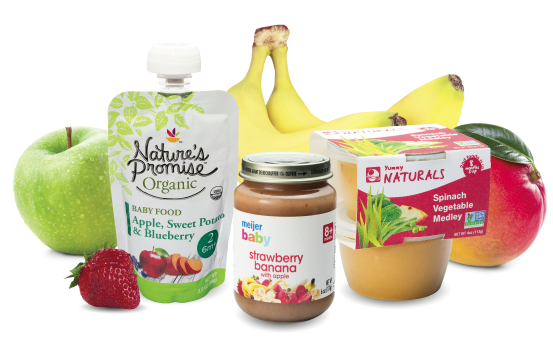 Produced in HiPP's own factory in Hungary, fish "dishes" are sourced from the North Atlantic, certified by the Marine Resources Council (MSC), and the "Responsible Fishing" label on the packaging ensures that the fish are caught in a sustainable manner. respect for the environment while preserving the natural resources of fishing. nine0005
Produced in HiPP's own factory in Hungary, fish "dishes" are sourced from the North Atlantic, certified by the Marine Resources Council (MSC), and the "Responsible Fishing" label on the packaging ensures that the fish are caught in a sustainable manner. respect for the environment while preserving the natural resources of fishing. nine0005
For the production of baby food, frozen vegetables are used, since shock freezing retains all the beneficial properties and taste, while increasing the shelf life, and, accordingly, the shelf life of the finished product.
See packaging
How do you know if a product is organic? Are there any special labeling requirements?
Euroleaf (European Union) means that it is a certified organic product, i.e. methods of obtaining raw materials, production, processing, storage and transportation and quality characteristics of the final product meet the requirements of the EU organic standard. nine0005
HiPP ORGANIC means that HiPP has even more stringent requirements for the production of organic food than prescribed by EU legislation and organic standards.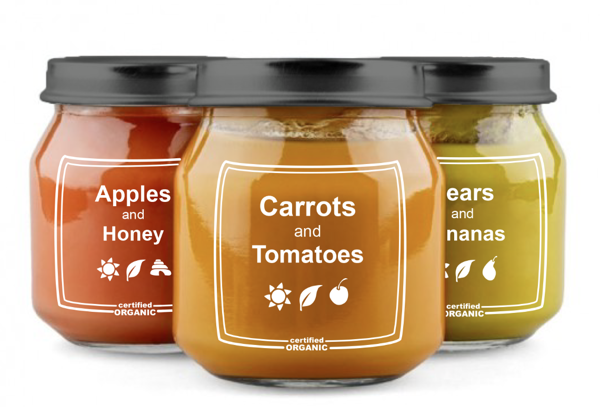
When choosing a product, also pay attention to the age recommendations of the manufacturer and the degree of grinding of the product: the words “homogenized”, “mashed” and “coarsely ground” indicate the degree of grinding of the puree: a homogeneous consistency or with pieces. nine0005
Let's go back to our "zucchini" and the widespread question of mothers: "Where can I find fruits and vegetables grown without pesticides, chemicals and growth hormones"? We repeat that the choice is, of course, yours, and we, who are all for organic, are pleased that HiPP produces premium organic baby food in our country and for our children. And this certified organic quality moms can trust one hundred percent.
German baby food manufacturer interested in organic products from Kazakhstan – Forbes Kazakhstan
Photo: © Depositphotos.com/teresaterra
To get acquainted with the German experience, the project "Kazakhstan-German Agrarian-Political Dialogue" organized a trip of representatives of NCE "Atameken" and the Union of Organic Producers to Bavaria.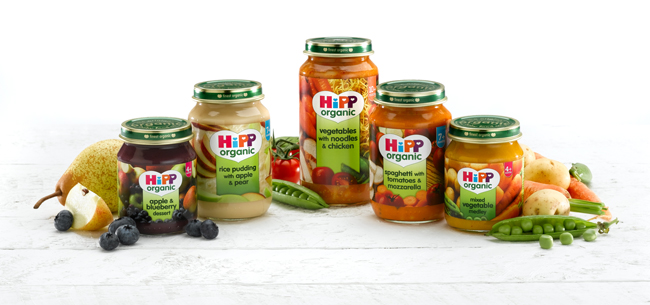 The trip program included a visit to the world's largest exhibition of organic food Biofach-2019, an organic farm and an agricultural university.
The trip program included a visit to the world's largest exhibition of organic food Biofach-2019, an organic farm and an agricultural university.
Benefits of localization
One of the exhibitors at Biofach-2019Dr. Martin Bohn said that 22 years ago he founded Freiland Puten, which today is a major supplier of organic chicken and turkey meat. Production started on with 200 birds. Today, 1 million chickens and 250 thousand turkeys are grown here a year. The enterprise has a full cycle - from fodder procurement to sale. This guarantees the purity of the biochain.
Meat is the most expensive organic product. This is due to the need to comply with a lot of requirements for the conditions of keeping and feeding animals. Therefore, the price for it is high: a kilogram of chicken - 10 euros , kilogram of turkey fillet - 25 euros .
- For 20 years we have been growing by 5-10% depending on the needs of the market, - said Martin Bohn. – We supply products both to retail chains and processors. In addition to the EU countries, exports go to the United Arab Emirates.
– We supply products both to retail chains and processors. In addition to the EU countries, exports go to the United Arab Emirates.
One of Freiland Puten's meat buyers is Hipp, an organic baby food company. She also participated in the exhibition. Head of company Stefan Hipp said that after the devaluation of the ruble, followed by the devaluation of the tenge, the company's products became uncompetitive on the EAEU market. Then it was decided to localize production in Kaliningrad. The launch of this plant made it possible to reduce the cost, but there is still a resource for further reduction. After all, the company still imports raw materials for production from the European Union.
Photo: archive of the press service
Martin Bohn
- It would be very interesting for us to cover our need for organic products with raw materials from Kazakhstan, - said Stefan Hipp. - The exchange rate difference in the currencies of our countries is large, and this makes Kazakhstani organics attractive. If we could use local raw materials, we would be able to reduce costs even more. In addition to grains and oilseeds, we are especially interested in fruits and vegetables. If the quality meets the requirements, we are ready to purchase 20-30 thousand tons of wheat and rapeseed per year. In terms of price, last year we paid 9 per tonne of organic wheat0063 350-400 euros.
If we could use local raw materials, we would be able to reduce costs even more. In addition to grains and oilseeds, we are especially interested in fruits and vegetables. If the quality meets the requirements, we are ready to purchase 20-30 thousand tons of wheat and rapeseed per year. In terms of price, last year we paid 9 per tonne of organic wheat0063 350-400 euros.
400 euros per hectare
Farmer Hermann Zeller leads the regional Association of Organic Milk Producers in Bavaria, which includes 60 farms . The association solves current issues. For example, he sets the selling price of milk for every two or three months and is looking for buyers for stable sales.
Photo: press service archive
The Zellers and their power plant
Hermann Zeller and his wife's own farm Thani is located in Ipsheim. Like most organic farms, the Zeller farm combines livestock and crop production in order to be able to improve soil fertility with manure.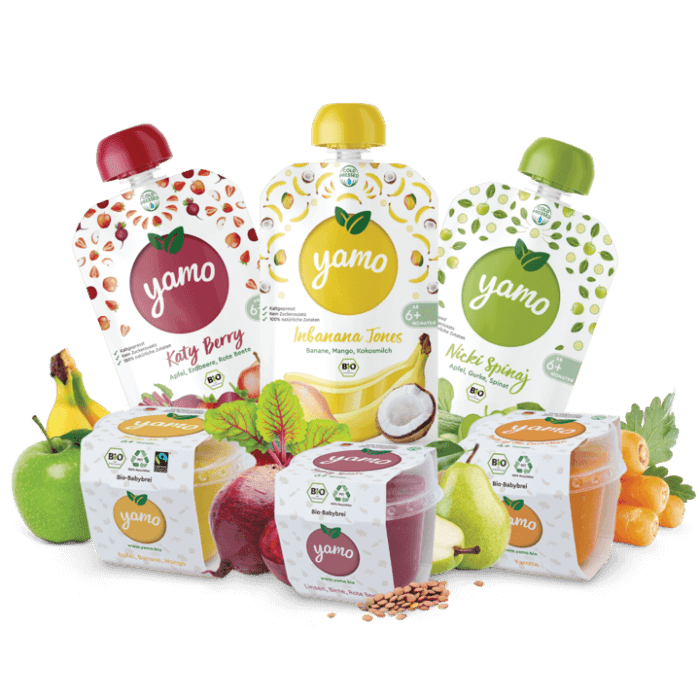 Straw bedding from cowsheds is used for its manufacture. The straw is also our own, which is much cheaper than if you had to buy it.
Straw bedding from cowsheds is used for its manufacture. The straw is also our own, which is much cheaper than if you had to buy it.
- Our climate is warm, - told Hermann Zeller . But the soil is heavy, clayey. So we grow those vegetables that grow above the ground, and not in the ground. That is, we do not deal with potatoes. Our specialty is zucchini and pumpkins. nine0080
On the farm 90 ha land. Of these, 50 ha are arable land, and 40 ha are pastures and hay meadows. All areas are certified organic. Most of the neighbors are also organics. This is an advantage since no one in the county uses agrochemicals and does not pose a risk of accidental contamination to clean lands.
The arable crop rotation includes alfalfa, which serves as fodder for cows. Wheat is also cultivated. Spring barley is grown, which is suitable for the production of beer due to its lower protein content. Winter barley is also available, it serves as animal feed.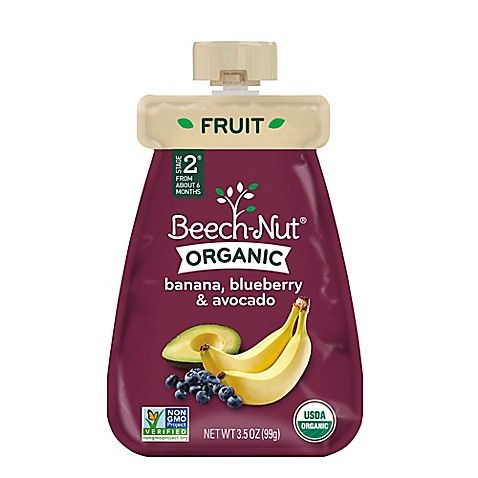 Peas and triticale, a hybrid of wheat and rye, are grown. nine0005
Peas and triticale, a hybrid of wheat and rye, are grown. nine0005
Vegetables occupy 5 ha . Of these, zucchini - 2 ha , and pumpkin - 3 ha . And pumpkins - 15 varieties. Vegetables go to a large retail chain specializing in the sale of organic products in Germany and neighboring countries - Austria and Denmark. The merchants themselves take the harvest twice a week.
Photo: archive of the press service
Last year, deliveries of vegetables from the farm amounted to 100 tons. Price for organic products is 50% higher than normal. So, if a pumpkin costs 0.8 euros per kilogram , then organic - 0.4 euros more expensive. At the same time, the yield of organic plots, in comparison with traditional plots, is lower than 90,063 percent by 20,90,064 percent. But there are also savings - there is no need to spend money on agricultural chemistry.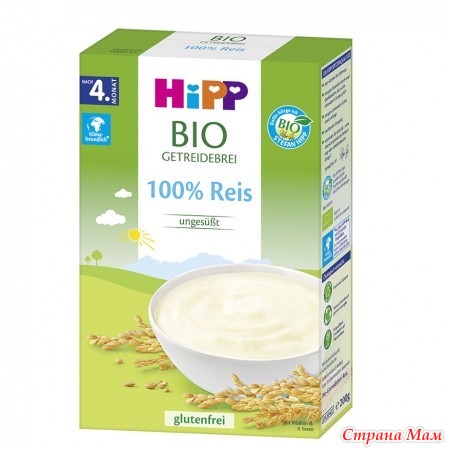
Milk is collected by the same trade network. In total, there are 50 heads of cattle on the farm . Half of them are dairy cows. Each of them gives 7,000 kg per year milk fat content 4.2%. Simmentals - meat and dairy breed. Bulls at the age of from 4 to 6 weeks are also handed over for further cultivation to an organic meat farm. This is a good additional income, in addition to milk. The price of organic milk, by the way, is 0.48 euros per liter . This is twice as expensive as the regular .
Requirements for organic production of animal products - mandatory grazing on pasture during the summer. Plus top dressing with grain meal with the addition of vegetable oil. Owls living in the attic allow farmers to fight mice - it is impossible to use poisons on an organic farm. nine0005
Photo: archive of the press service
Next to the house, the farmers built a small solar power plant - the use of renewable energy sources fits well with the philosophy of organics. The panels annually produce 2000 kilowatts of energy and allow you to get a good additional income.
The panels annually produce 2000 kilowatts of energy and allow you to get a good additional income.
In addition, in Bavaria there is a serious state support for farmers, and especially for organic farmers. There are no subsidies for products, they are paid only for the area. Each hectare of traditional arable land is subsidized in the amount of about 190 euros per year. In addition, organic arable land receives another at 230 euros per hectare . These funds make it possible to pay for certification, which is carried out annually and costs the farm 3300 euros. Thus, the organic farm receives in the year more than 400 euros subsidies per hectare. Moreover, the area under vegetables and vineyards is a little more.
As for the certification procedure itself, everything is checked - from accounting papers and a list of purchases to the condition of the land and the conditions for keeping animals. nine0005
nine0005
Good technology
The Zellers have three sons. One of them, still a schoolboy, plans to continue his education at an agricultural university and work on a family farm. Among the largest universities in Germany with an organic specialization is the University of Weihenstephan-Triesdorf in the town of Freising.
Photo: press archive
Stefan Hipp
Professor Wilhelm Pflanz specializes in organic poultry farming. He talks about the philosophy of this approach - treats animals kindly. Including to provide living conditions as close as possible to those that they have in nature. This is where the mandatory requirement for free grazing comes from. And indoors, certain areas are prescribed for different types of farm animals, much more spacious than in traditional livestock and poultry farming. The goal is to make the content comfortable. nine0005
One of the current developments of the scientist, on which he is working together with students, is the use of cockerels in the production of chicken meat.

